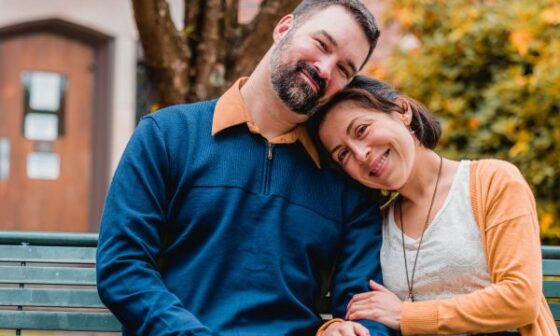Empower equality and love. Explore the benefits of LGBTQ+ adoption. Support inclusive families for a brighter future. This article aims to explore the reasons why it is essential to grant gay couples the right to adopt and provide loving homes for children in need.
By examining the importance of equal adoption rights, the love and stability within gay relationships, research and expert opinions, challenging stereotypes and prejudices, and the legal and ethical aspects of adoption, we can gain a comprehensive understanding of this topic
Reasons Why Gay Couples Should Be Allowed To Adopt
1. Ensuring Equality and Inclusion in Adoption
Every individual, regardless of their sexual orientation, should have equal opportunities to create a family through adoption. Denying gay couples the right to adopt perpetuates discrimination and denies children the chance to grow up in loving, supportive households. By granting equal adoption rights, society embraces inclusivity and recognizes that the ability to provide a nurturing environment for a child should not be restricted by sexual orientation.
2. Love and Stability in Gay Relationships
- Creating a Nurturing Environment
Research consistently demonstrates that the gender or sexual orientation of parents has no bearing on a child’s emotional and psychological well-being. Love, care, and support are the fundamental aspects of parenting, regardless of the parents’ sexual orientation. Gay couples have the capacity to create nurturing environments, offering children a stable foundation for their emotional development.
- Emotional Support and Stability
Gay couples often share a deep emotional bond, and their relationships can be characterized by stability and commitment. This stability positively influences the well-being of children raised in such families. By allowing gay couples to adopt, we provide children with the emotional support they need, ensuring their growth and development within a loving family unit.
3. Providing Loving Homes for Children in Need
- Overcrowded Foster Care System
The foster care system in many countries is overwhelmed, with a significant number of children waiting for adoption. Allowing gay couples to adopt increases the pool of potential adoptive parents and offers these children a chance to find permanent, loving homes. By expanding the options for placement, we address the issue of overcrowding and provide better opportunities for children awaiting adoption.
- Improved Outcomes for Adopted Children
Numerous studies have shown that children raised by gay couples fare as well as those raised by heterosexual couples. The loving and supportive environment provided by gay parents can lead to positive outcomes in areas such as emotional well-being, educational attainment, and social adjustment. Allowing gay couples to adopt provides children with the opportunity to thrive and grow into well-rounded individuals.
Research and Expert Opinions
Extensive research has been conducted on gay parenting, consistently indicating that the sexual orientation of parents has no detrimental effect on children. Multiple studies have shown that children raised by gay couples exhibit similar levels of happiness, self-esteem, and overall well-being as children raised by heterosexual couples. These findings debunk the misconception that the sexual orientation of parents negatively impacts a child’s development.
Support From Professional Organizations
Leading professional organizations, including the American Psychological Association (APA), the American Academy of Pediatrics (AAP), and the National Association of Social Workers (NASW), have endorsed gay adoption rights. These organizations rely on scientific research and expert opinions to affirm that the best interests of the child are met by focusing on the qualities of the adoptive parents, rather than their sexual orientation.
Challenging Stereotypes and Prejudices
1. Addressing Misconceptions
Opponents of gay adoption often rely on stereotypes and misconceptions to argue against it. It is crucial to challenge these stereotypes and educate the public on the realities of gay parenting. By dispelling these misconceptions, we can promote understanding and acceptance, allowing for a more inclusive society that values the diversity of family structures.
2. Promoting Diversity and Acceptance
Granting gay couples the right to adopt fosters a culture of acceptance and diversity. It sends a powerful message that love and commitment, regardless of sexual orientation, are the cornerstones of a healthy family. By embracing diverse family structures, we encourage inclusivity and break down societal barriers that hinder progress.
The Legal and Ethical Aspect of Adoption
1. Equal Rights for All Couples
Denying gay couples the right to adopt is a violation of their fundamental human rights. By recognizing and granting equal adoption rights, societies promote equality and create a more just and compassionate environment for all families. Legalizing gay adoption acknowledges the value and importance of every individual’s ability to provide a loving home for a child.
2. Fostering Inclusivity and Equality
Legislation that allows gay couples to adopt contributes to a more inclusive society that celebrates diversity and recognizes the inherent worth of every individual. It promotes equality, challenges discrimination, and reflects the progressive nature of modern society. By embracing gay adoption, we demonstrate our commitment to creating a world where every child is valued and every family is recognized.
Conclusion
Granting gay couples the right to adopt is not only a matter of equality and inclusivity but also of providing loving homes for children in need. Love and stability are the key elements in any successful parenting environment, and gay couples are fully capable of offering these qualities to children. Research and expert opinions consistently support gay adoption rights, dispelling misconceptions and prejudices. By challenging stereotypes and promoting acceptance, we foster a society that embraces diversity and values all families. Legally recognizing gay adoption ensures equality and demonstrates our commitment to a more compassionate and inclusive future.
FAQs
Q1: Are there any negative effects on children raised by gay couples?
A: No, extensive research has consistently shown that children raised by gay couples exhibit similar levels of well-being and happiness as those raised by heterosexual couples. Sexual orientation does not determine the quality of parenting.
Q2: Can gay couples provide a nurturing environment for children?
A: Yes, gay couples have the ability to create loving and nurturing environments for children. The emotional support and stability they offer contribute positively to a child’s development.
Q3: What do professional organizations say about gay adoption?
A: Leading professional organizations, such as the American Psychological Association and the American Academy of Pediatrics, support gay adoption rights based on scientific research and expert opinions.
Q4: Does allowing gay couples to adopt reduce the number of children awaiting adoption?
A: Yes, the overcrowded foster care system can be alleviated by expanding the pool of potential adoptive parents. Allowing gay couples to adopt provides more options for placement and helps find permanent homes for children in need.
Q5: Does legalizing gay adoption promote equality?
A: Yes, granting gay couples the right to adopt promotes equality by recognizing their fundamental human rights. It fosters inclusivity and creates a more just and compassionate society.







